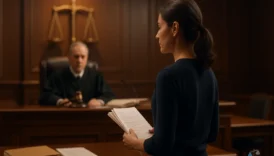What Is a Force Majeure Clause?

Contracts often face risks from unpredictable events that neither party can control. A force majeure clause addresses this issue by excusing parties from fulfilling contractual obligations when extraordinary circumstances make performance impossible or impractical. It is a vital safeguard in commercial, construction, and international agreements.
Simple Definition
A force majeure clause is a contractual provision that frees parties from liability or obligations when extraordinary events—such as natural disasters, wars, or government actions—prevent them from performing as promised.
Real-Life Examples
- Natural disasters: A hurricane delays a shipping contract, and the supplier is excused under force majeure.
- Pandemics: During COVID-19, many businesses invoked force majeure to suspend performance.
- Government restrictions: Export bans prevent delivery of goods.
- Civil unrest: Strikes, riots, or wars disrupt contract performance.
Importance of the Term
- Protects parties: Shields from liability in uncontrollable situations.
- Provides clarity: Defines what qualifies as an “extraordinary event.”
- Encourages fairness: Prevents unfair punishment for circumstances beyond control.
- Reduces litigation: Offers a contractual solution rather than prolonged disputes.
Common Force Majeure Events
| Category | Examples |
|---|---|
| Natural disasters | Earthquakes, floods, hurricanes, wildfires |
| Political events | Wars, terrorism, government embargoes |
| Health crises | Epidemics, pandemics, public health emergencies |
| Labor issues | Strikes, lockouts, widespread labor disruptions |
FAQ
1) Does a force majeure clause cover all unexpected events?
No. It applies only to events specifically listed or reasonably implied.
2) Can financial hardship qualify as force majeure?
Generally no. Courts usually exclude mere financial difficulty.
3) Who decides if force majeure applies?
Courts or arbitrators interpret the clause based on its wording and the facts.
4) Is force majeure automatic in contracts?
No. It must be explicitly written into the agreement.
5) Can parties modify a force majeure clause?
Yes. The scope and covered events can be negotiated by the contracting parties.
Closing
A force majeure clause is a crucial contractual safeguard that allocates risk when unforeseeable events occur. By defining the scope and consequences of extraordinary circumstances, it ensures fairness and protects parties from liability in situations beyond their control.






